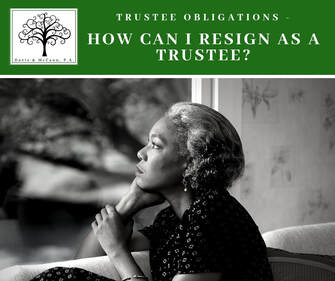 Q: My brother-in-law told me that his assets are safe from any Medicaid claims that he might encounter in the future for nursing home care because he has a Revocable Trust. I also have a Revocable Trust, but I didn’t think it protected my assets from Medicaid claims. Who is correct? A: You are. A Revocable Trust does NOT protect your assets from a Medicaid recovery claim against you. A Revocable Trust allows the creator/grantor (you) to make any changes to the Trust at any point in their lifetime, as long as they are competent. Because you have so much control over a Revocable Trust and are the beneficiary of the trust during your lifetime, Medicaid law allows for a claim to be made against assets held in a Revocable Trust just as they could make a claim over assets owned in your individual name. If you or your brother-in-law are concerned about protecting your property and/or other assets from future Medicaid claims related to nursing home or hospital expenses, you need to visit with an estate planning attorney well versed in elder law matters. Generally speaking, if you want to protect certain assets from creditor claims, including Medicaid, your assets must be owned by an IRREVOCABLE Trust, which CANNOT be controlled by you in any way. There are Irrevocable Trusts designed specifically for individuals who are concerned about protecting family assets, such as farm and ranch property that has been in the family for generations, and minimizing the risk of losing those assets to pay for long-term nursing home care. Be aware that this type of planning typically involves making a gift and triggering the 5-year look-back for Medicaid eligibility, so time is of the essence. Postponing planning until it appears that long-term nursing home care is inevitable can significantly decrease your ability to protect many of your assets. However, if you are currently in such a situation where you are facing immediate nursing home admission, don’t despair, there may be other options available to you. If you have questions, it is critically important that you seek out an attorney who understands the Medicaid system as it relates to elder care matters in your State. If you have questions about any estate planning or Medicaid planning matter in Kansas, contact Davis & McCann, P.A., Dodge City, Kansas at 620-225-1674. We are members of Wealth Counsel, a national consortium of Estate Planning Attorneys and the National Academy of Elder Law Attorneys (NAELA). We focus our practice on providing clients with the best legal advice on Estate Planning, Medicaid and Long-term Care Planning, Special Needs Planning, Family Business/Small Business Succession Planning, Probate, Trust Administration, Real Estate, 1031 Exchanges, and related matters.  Q: My mother is a relatively healthy 80 year old. A neighbor suggest that we transfer her home to me and have her retain a life estate interest, so she could avoid losing out on benefits from Medicaid, should she need nursing home care in the next few years. I am an only child and my father passed away years ago. What do you think about this idea? A: If the life estate deed is recorded at least five years before your mother requires a full-time nursing home care, this transfer should not bar her from Medicaid qualification. The rules on Medicaid qualifications for this type of situation are complicated to say the least. However, an overly simplified answer would be that her life estate interest will not be counted as a resource for KanCare (Medicaid program in Kansas) qualification purposes. Maintaining your mother’s home while she is in the nursing facility could potentially strain your finances. If she uses a life estate deed, there are other issues you both should consider, including: 1. Sale. If you plan to sell your mother’s home while she is alive, be aware that selling the house will require your and your mother’s consent. Your mother’s life estate interest has a value and such interest likely will then disqualify her from receiving KanCare benefits for a period of time, during which she will have to private pay for her nursing home care. 2. Gifting and Capital Gains Tax. Remember, that even though you don’t have a tangible asset yet due to your Mom’s life estate interest, you have still been gifted the residuary value of the home. Property that is gifted during your mother’s lifetime does not get a step-up in basis at her death, meaning you will likely have to pay capital gains tax on the property if you sell it. The tax you will owe after the sale could be substantial and will depend on factors such as what your mother paid for the property when she purchased it and what you sell the home for. Additionally, this will result in a penalty if your mother goes into a nursing facility and needs to become Medicaid eligible within 5 years of making the gift. 3. Death of Residuary Owner. What happens if your mother gifts you her home, maintains her life estate and then you die before she does? The property would then go to your estate, which may not be what your mother would want. Instead of deeding the house to you and having your mother retain a life estate interest, your mother may want to consider creating an irrevocable trust and deeding the house to the trust. This gives you a lot more flexibility. The trustee could sell the house and the sale proceeds would not disqualify your mother from KanCare benefits. If the house is not sold, then when your mother passes away, the trust could be set up in such a way that you would receive a “stepped-up basis”, resulting in no capital gains taxes if and when you sold the house. Be aware, that this type of trust is very complicated and not something that should be attempted on your own or without expert guidance. Please see an experienced long-term care estate planning attorney to determine the best course of action for your mother’s unique situation. For more information on Real Estate and Medicaid planning, contact Davis & McCann, P. A., Dodge City, KS. We are members of Wealth Counsel, a national consortium of Estate Planning Attorneys and focus our practice on providing clients with the best legal advice on estate planning, Medicaid and Long-term Care Planning, Special Needs Planning, Family Business/Small Business Succession Planning, Probate, Trust Administration, Real Estate, 1031 Exchanges, and related matters.  Are you an owner in a multi-owner Corporation, LLC, S-Corp, or Partnership? If so, have you given any thought to or prepared a formal business succession plan? One of the more difficult parts of being a business owner can be deciding how to wind up a business or determine how to restructure ownership after an owner wants out or dies. In order to simplify this process, the business owners should insist on having a formal Buy/Sell Agreement signed when they begin their business relationship. A Buy/Sell Agreement is a legally binding contract that stipulates how an owner’s share of a business may be reassigned if that owner dies or otherwise leaves the business. Buy/Sell Agreements often stipulate that the available share be sold to the remaining owners or to the company. Buy/Sell Agreements can take many forms and there are no requirements as to how such agreements must be structured. Terms for such an agreement are negotiated between the owners. Therefore, the advice of an attorney is needed to ensure the best possible exit strategy for all of the owners. Important clauses that every Buy/Sell Agreement should contain: 1. Valuation. The Agreement should include detailed information about your business’ worth. You should consider having it professionally appraised or using a set formula to value the business. You want the valuation provision clearly defined to establish a fair purchase price in the future in order to reduce conflicts. 2. Identify the Parties. The Buy/Sell Agreement must identify all the owners entering into the agreement. 3. Funding the Buyout. You want to make sure the Buyer has the financial ability to fulfill the payment terms of the Agreement. Many Buy/Sell Agreements utilize life insurance policies to ensure the purchase will be adequately funded. Don’t just assume the Buyer will have the cash at the time to purchase the business or that they can borrow 100% of the purchase price.  Acting as Trustee of a Trust can be challenging, and you should understand the responsibilities and duties involved if you are to serve in such a position. Although you may have initially been willing to assume this role, there may come a time when you know you want to resign as Trustee. Perhaps the administration of the Trust is taking more time and energy than you have available, or perhaps your health has deteriorated to the point where you no longer can properly carry out your duties; you don’t need to have a specific reason to resign. However, if you do need to resign as Trustee of a Trust there are a series of steps that should be followed to ensure that you are released, as much as possible, from any further liability. A Trustee resignation should occur pursuant to the terms of the Trust. As long as you are Trustee, you are a fiduciary of the Trust with a duty of loyalty and a duty of care to the Trust and to the beneficiaries. Therefore, you must resign properly in order to ensure that you are not held responsible for problems that may occur due to your resignation or after your resignation. Even if the terms of the Trust seem clear and easy, you should consult with an attorney to ensure you are in compliance with the Trust and the law. To resign as Trustee, the following steps generally must occur: 1. Check the original Trust document to see if there is a successor Trustee named. If there is no successor Trustee listed, a new Trustee will have to be appointed. The Trust may allow you to appoint a successor Trustee, but a thorough examination of the Trust will be required to determine this. If one or more of the original Grantors are still living and capable, they can name a successor trustee, if the Trust is a Revocable Trust. If the Grantor is unable to appoint a new Trustee, the current beneficiaries may be able to appoint a new Trustee. As a last resort, the Court always has the ability to appoint a successor Trustee. Whether these options are available to you depends largely on the terms of the Trust and the type of Trust.  If you’re age 65 or older, issues like retirement and long-term care planning are probably more frequent topics of your conversation. Even if you’re not in this population group, chances are you know and care for someone who is. Research from the U. S. Department of Health and Human Services suggests that if you are age 65 or older, you’re most likely going to need long-term care at some point in your life. Unless you are sufficiently wealthy or exceptionally poor, it would seem wise to do some advanced planning to cope with the increasing health care costs that will accompany long-term care stays. Options you may want to investigate include, but are not limited to: 1. Long-term Care Insurance. The older you are and the longer you wait to obtain insurance, the more expensive it will become. Costs for long-term care insurance (LTCI) tend to be expensive and premiums will most likely rise over your lifetime. With average premiums running at $2,700 a year (per industry research firm, LifePlans), seniors may find LTCI too cost prohibitive to be a realistic option. Additionally, your age or current health condition may disqualify you from obtaining this type of insurance. 2. Life Insurance. Some insurance companies offer life insurance with long-term care riders. With this type of policy, your beneficiaries may still receive a death benefit even if you use long-term care rider benefits. With traditional LTCI, there is no death benefit paid to your beneficiaries after your death. 3. Family Members. Your immediate or extended family members may be able and willing to care for you or pay for your health care costs. With annual semi-private nursing home room costs running on average at $90,000 annually, according to a 2019 Genworth study, few families can afford to cover these costs for a year, let alone for multiple years. 4. Medicare. Kansas Medicare program (KanCare) does NOT cover long-term care expenses for patients requiring full nursing home care, except for very limited circumstances. |
NEWS YOU CAN USEDavis & McCann, P. A., Archives
April 2021
Categories
All
|

 RSS Feed
RSS Feed